When a force F acs on a body of mass m the acceleration product in the body is a . If htree equal forces F1=F2=F3=F act on the same body as shown in figure the accleration produced is
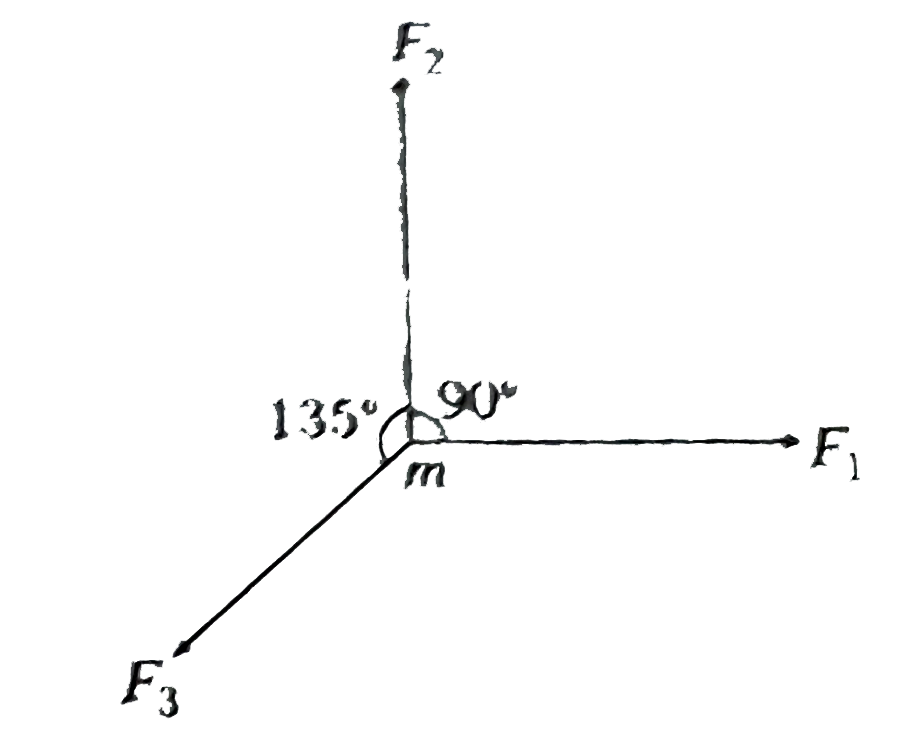
(√2−1)a
(√2+1)a
√2a
a
The correct Answer is:A
(a) F=ma
Resultant of three forces F1,F2 and F3 will be (√2−1)F.
Therefore, acceleration of body is also (√2−1)a
Topper's Solved these Questions
- LAWS OF MOTIONBOOK - DC PANDEYCHAPTER - LAWS OF MOTIONEXERCISE - Check point 5.3
20 Videos
- LAWS OF MOTIONBOOK - DC PANDEYCHAPTER - LAWS OF MOTIONEXERCISE - Check point 5.4
20 Videos
- LAWS OF MOTIONBOOK - DC PANDEYCHAPTER - LAWS OF MOTIONEXERCISE - Check point 5.1
20 Videos
- KINEMATICS 1BOOK - DC PANDEYCHAPTER - KINEMATICS 1EXERCISE - INTEGER_TYPE
15 Videos
- LAWS OF THERMODYNAMICSBOOK - DC PANDEYCHAPTER - LAWS OF THERMODYNAMICSEXERCISE - Level 2 Subjective
18 Videos
Similar Questions
When only a force F1 acts on a body of mass 3 kg, it accelerates in north east direction with an acceleration of √2m/s2. When only a force F2 acts on it accelerates in south east direction with an acceleration of √2m/s2. What force F3 (in N) should act on body along with F1 and F2 so that the body is in equilibrium.
View SolutionA force F is acted on a body as shown in the figure. Find the impulse of the force in first four seconds.
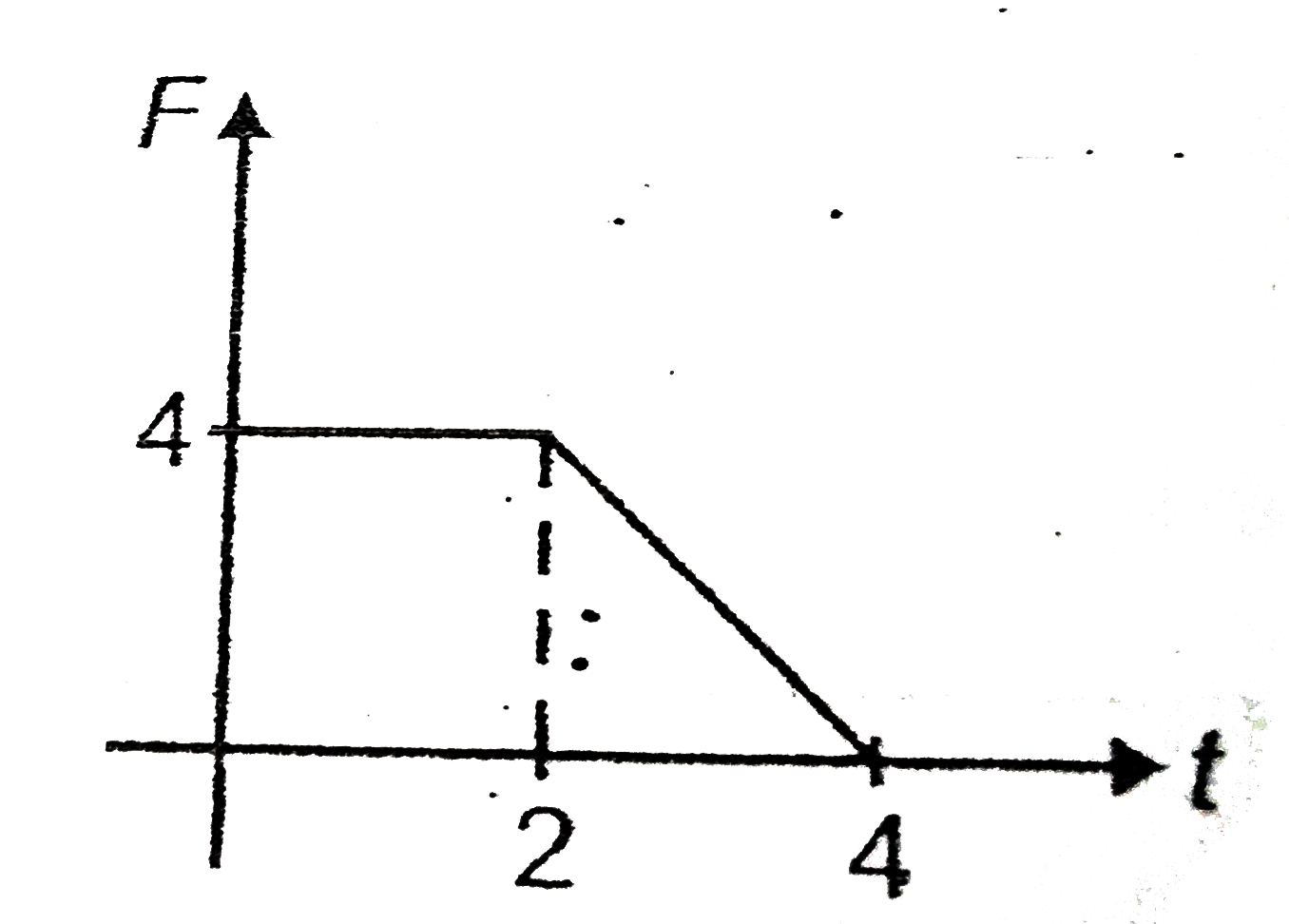
View Solution
Knowledge Check
When a force F acts on a body of mass m, the acceleration produced in the body is a. If three equal forces F1=F2=F3=F act on the same body as shown in figure the acceleration produced is
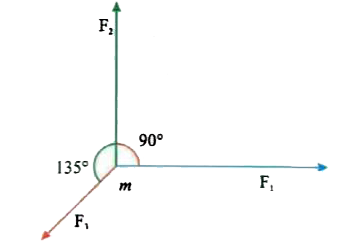 A(√2−1)aB(√2+1)C√2Da
A(√2−1)aB(√2+1)C√2DaWhen a force F acs on a body of mass m the acceleration product in the body is a . If htree equal forces F1=F2=F3=F act on the same body as shown in figure the accleration produced is
 A(√2−1)aB(√2+1)aC√2aDa
A(√2−1)aB(√2+1)aC√2aDaTwo forces F1 and F2 are acting on a rod abc as shown in figure.
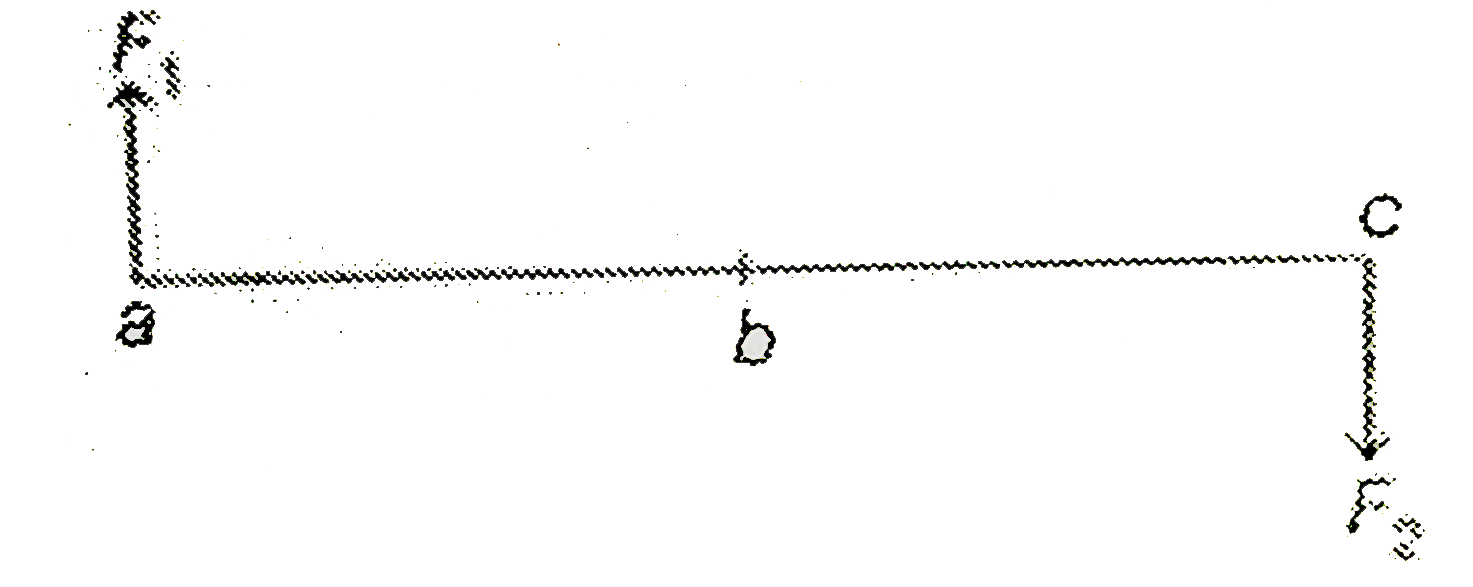 Aif F1=F2 then τa=τb=τc ( for both forces)Bif F1=F2 then τa=τc≠τb ( for both forces)Cif F1≠F2 then τa≠τb≠τc ( for both forces)Dif F1≠F2 then τa=τc≠τb ( for both forces)
Aif F1=F2 then τa=τb=τc ( for both forces)Bif F1=F2 then τa=τc≠τb ( for both forces)Cif F1≠F2 then τa≠τb≠τc ( for both forces)Dif F1≠F2 then τa=τc≠τb ( for both forces)
What is the tension in a rod of length length L and mass M at a distance y fromF1 when the rod is acted on by two unequal force F1 and F2(<F1) as shown in.

View SolutionWhen a force F acts on a particle of mass m, the acceleration of particle becomes a. now if two forces of magnitude 3F and 4F acts on the particle simultaneously as shown in figure, then the acceleration of the particle is
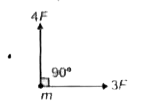
View SolutionA force F appllied to a body(A)of mas m1 produces an acceleratioin of 4m/s2. If the same force F is applied to another body (B) of mass m2, then an acceleratiionof 10m/s2, produced in the body. A and B are the tied together and the same force is applied to the combined body. What is the acceleration of the system?
View SolutionWhen force →F1,→F2,→F3 are acting on a particle of mass m, the particle remains in equilibrium. If the force →F1 is now removed then the acceleration of the particle is :
View SolutionA body of mass 2 kg starts with an intitial-velocity 5 m/s. It the body is acted upon by a time dependent force (F) as shown in figure, then work done on the body in 20 s is
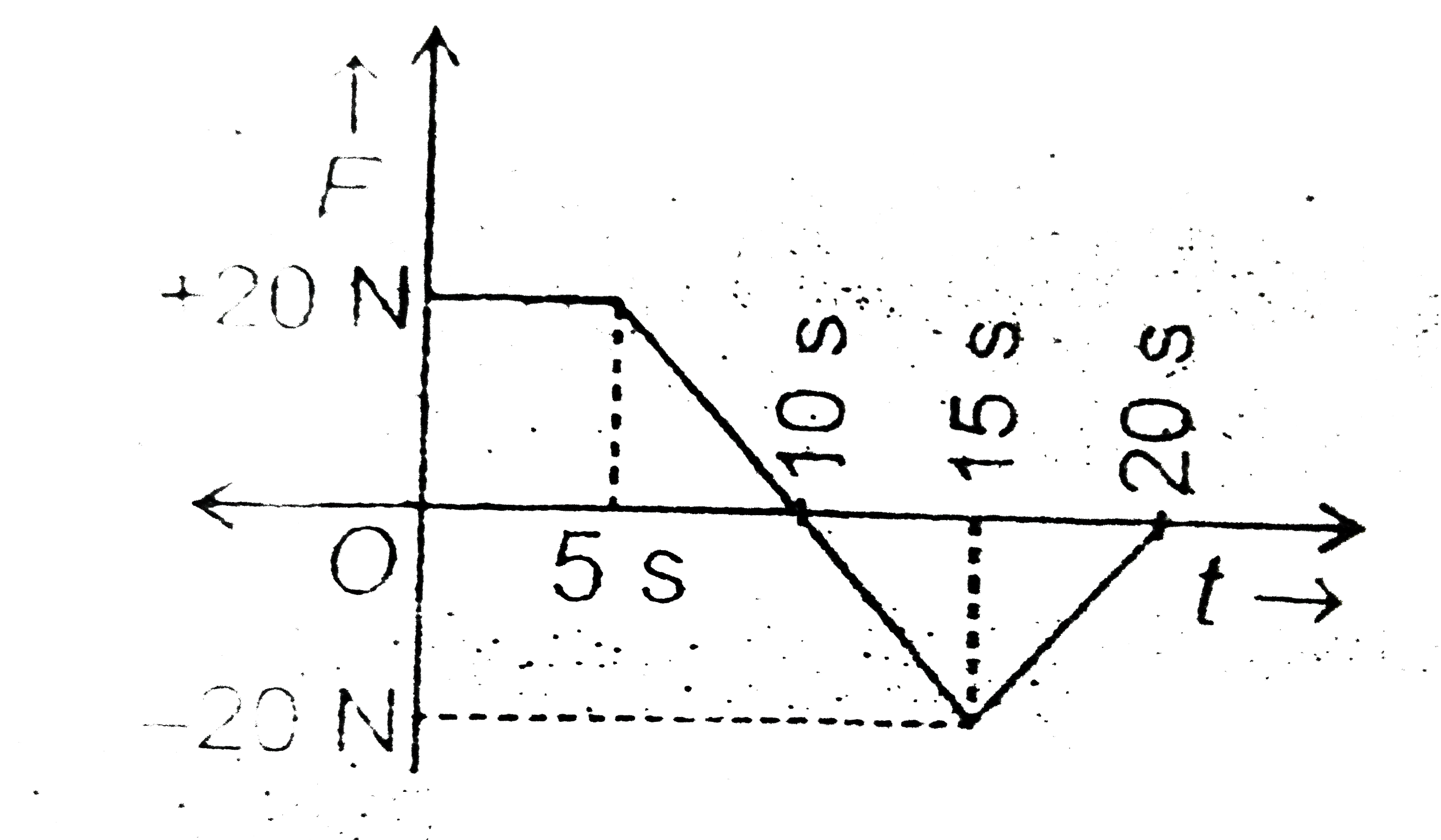
View Solution
